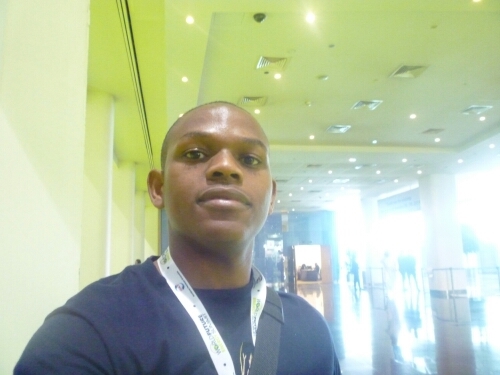For many, admission to an elite institution is less about education and more about validation. It is a shortcut to legitimacy; a stamp that says: “this person is credible”. As one Stanford graduate put it: “Elite institutions don’t produce talent; they certify it”. Most of us don’t become brilliant at Stanford. We just become more believable to people in power.” For others, the validation is inward. It serves, as Nat Eliason framed it, as “proof you can do hard things”.
But once inside, it’s hard to escape the subtle forces that shape ambition and define what counts as success. Paul Graham captured this idea when he wrote about how cities whisper to their inhabitants, pushing them toward particular kinds of success: “Great cities attract ambitious people. You can sense it when you walk around one. In a hundred subtle ways, the city sends you a message: you could do more; you should try harder.” He continues: “New York tells you, above all: you should make more money… What I like about Boston (or rather Cambridge) is that the message there is: you should be smarter.”
Elite business schools are similar to cities in this regard. You can almost hear a faint whisper in the corridors: “Above all, you should get a high-paying, high-status job”. In my first few weeks at Yale, I noticed how casual conversation gravitates towards recruiting and career goals; the same quiet message in a different form. In many ways, these institutions feel like playgrounds for high achievers, filled with well-marked ladders and slides for those eager to climb. As Patrick Collision once put it, “If you’re in the US and go to a good school, there are a lot of forces that will push you towards following train tracks laid by others rather than charting a course yourself.”
To be sure, many lean into these tracks willingly, not out of blindness but out of sheer pragmatism. After all, how else does one pay off their student debt but with a high-paying job? “Worry about the rest of your life later” becomes the unspoken logic. As Michael Lewis wrote in Liar’s Poker: “There was one sure way, and only one sure way to get ahead, and everyone with eyes in 1982 saw it: Major in economics; use your economics degree to get an analyst job on Wall Street; use your analyst job to get into Harvard or Stanford Business School and worry about the rest of your life later.”
The impulse to “get into an elite institution and worry about the rest of your life later” feeds into a broader pattern: the deferred life plan. It’s the tendency, especially amongst business school students to postpone their true ambitions. For many of us, our goals tend to follow a familiar script: “I’ll work in X for a few years, then do Y”, where Y is something entrepreneurial like “start my own fund” or “build a startup”.
The deferred life plan has always been suspect. Sam Altman dismissed it outright: “I don’t believe in the deferred life plan. A common criticism of people in Silicon Valley, who I think have great futures in their past, are people who say some version of the following sentence. My life’s work is to build rockets, so …I’m going to make a hundred million dollars in the next three, maybe… four.. years, trading crypto currency with my crypto hedge fund, because I don’t want to think about the money problem anymore, and then I’m going to build rockets. They never do either.”
A plan built on postponement carries with it a quiet danger: the longer you delay it, the harder it becomes to begin. Moreover, obvious as it sounds, there’s no better way to get ready for something than to start doing it. But an even bigger problem with the deferred life plan is its implicit assumption that the world will largely remain the same: that the paths to security and status will still lead where they used to.
If Anthropic CEO, Dario Amodei’s predictions hold true, then we may soon wake up in “a country of geniuses in data centers”. What, if anything, does this mean for those of us sitting in classrooms and chasing career plans built for a different era? The cynical answer: very little. Genius was never the bottleneck. As Peter Thiel observed: “we live in a world in which courage is in far less supply than genius”. Genius scales. Courage doesn’t. To the extent that this is prescriptive, it should nudge one to toward independently building conviction rather than following default paths. Courage, after all, rarely arrives before conviction. In fact, one could argue that the deferred life plan is simply a symptom of a lack of courage.
The less cynical take is that we are living through a unique moment of consequence; one where the very substrate of education, work and status feels porous. In times like this, curiosity isn’t optional; we have to question default tracks and be open to the undefined, to detours, to interruptions. As Richard Hamming once said: “he who works with the door open gets all kinds of interruptions, but he also occasionally gets clues as to what the world is and what might be important”.
Meanwhile, some argue that AI may have already reached its peak. As Cal Newport notes, scaling laws no longer seem to yield the same returns: “Post-training improvements don’t seem to be strengthening models as thoroughly as scaling once did. A lot of utility can come from souping up your Camry, but no amount of tweaking will turn it into a Ferrari.”
Either way, Ferrari or Camry, AI makes us all more capable. To the extent that a deferred life plan is a story we tell ourselves justifying waiting, then AI asks the opposite question: why wait at all? If English is the “new hot programming language,” as Andrej Karpathy points out, you can practically talk your ideas into existence. This is true beyond just software; the gap between idea and execution has never been smaller across industries. This then begs the question: if the future has already arrived, what are we still postponing?
Originally published on Seeing Around Corners substack
This post was created with our nice and easy submission form. Create your post!






